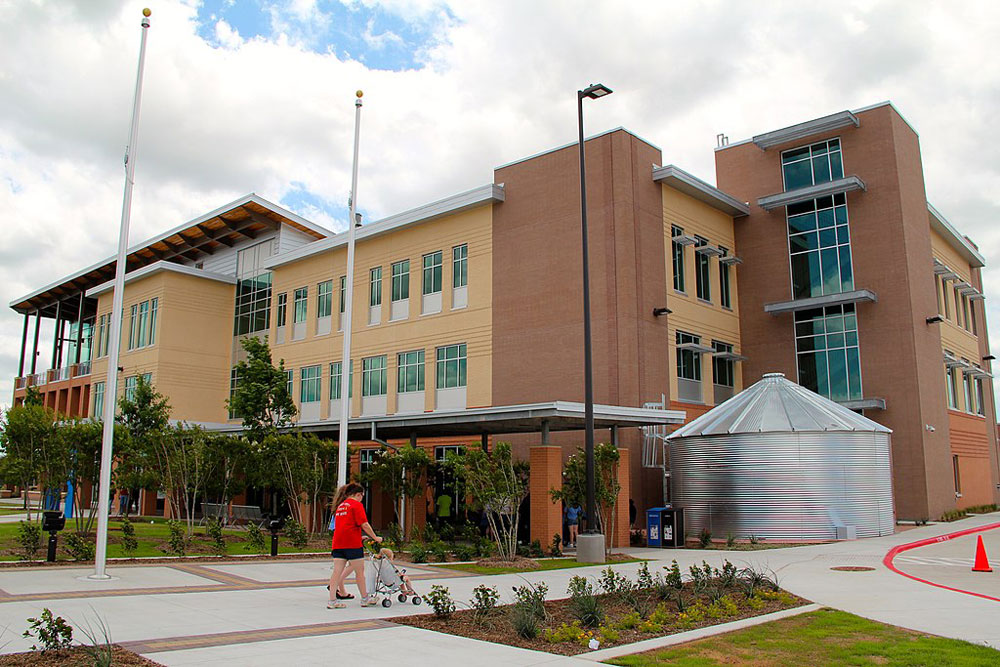
September 1, 2020; KVUE-TV (Austin, TX)
With record-breaking wildfires in California and named storms coming much earlier, it seems the reality of the global climate emergency is being reinforced on a daily basis. To answer the call, colleges are making advances into renewable energy and green practices. Austin Community College (ACC) is now the first community college in Texas to use 100-percent renewable energy on two campuses.
Due to the COVID-19 pandemic, ACC is operating primarily online at this time, with limited in-person classes, but the campuses in Elgin and Round Rock followed through with finalizing renewable plans during the summer and now use wind and solar power. Except for a power company in Central Texas, the college is now the state’s largest generator of solar power.
ACC is following a sustainability plan created in 2009 when ACC became a member of the American College and University Presidents’ Climate Committee. Other institutions have developed green initiatives of their own, moving toward 100-percent renewable through physical changes on campuses, green partnerships, and carbon credit exchanges. Some found on the EPA’s list of green power users are the University of California, which uses biogas, biomass, solar, and wind to fulfill 30 percent of their electrical needs, and Columbia University in New York City, which purchases renewable energy certificates to offset 100 percent of the greenhouse gas emissions from six college sites around the city.
Sign up for our free newsletters
Subscribe to NPQ's newsletters to have our top stories delivered directly to your inbox.
By signing up, you agree to our privacy policy and terms of use, and to receive messages from NPQ and our partners.
ACC’s green initiatives include “rooftop solar panels at eight campuses,” “rainwater/AC condensation reclamation,” “waste diversion including zero-waste events that boast an 80 to 90 percent waste diversion rate,” and “alternative transportation programs such as Green Pass with Capital Metro, Green Car with preferred parking for fuel-efficient and low-emission vehicles and electric vehicle charging stations on all campuses.”
Chancellor Richard Rhodes says, “ACC is committed to becoming a leader in sustainability. That means using less energy and fewer resources while minimizing waste. Our goal is to shrink the college’s ecological footprint and increase environmental awareness.”
“It’s nice to have some good news for a change. With solar energy systems installed on eight campuses, ACC was already a leader within Texas for renewable energy and sustainability,” said the executive director of the Environment Texas Research and Policy Center, Luke Metzger. “Now, by moving two of its campuses completely off of fossil fuels, ACC is significantly reducing its carbon footprint and helping ensure a safer, more livable climate for our community.”—Marian Conway













